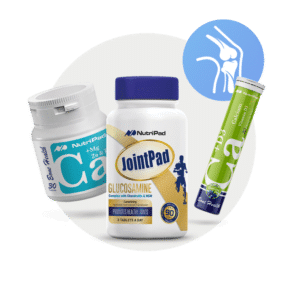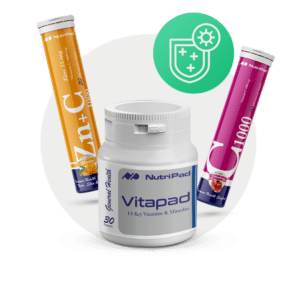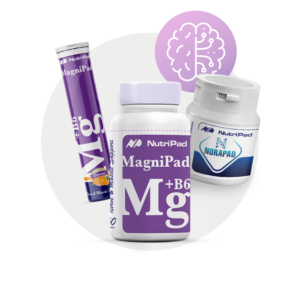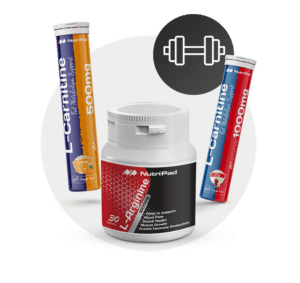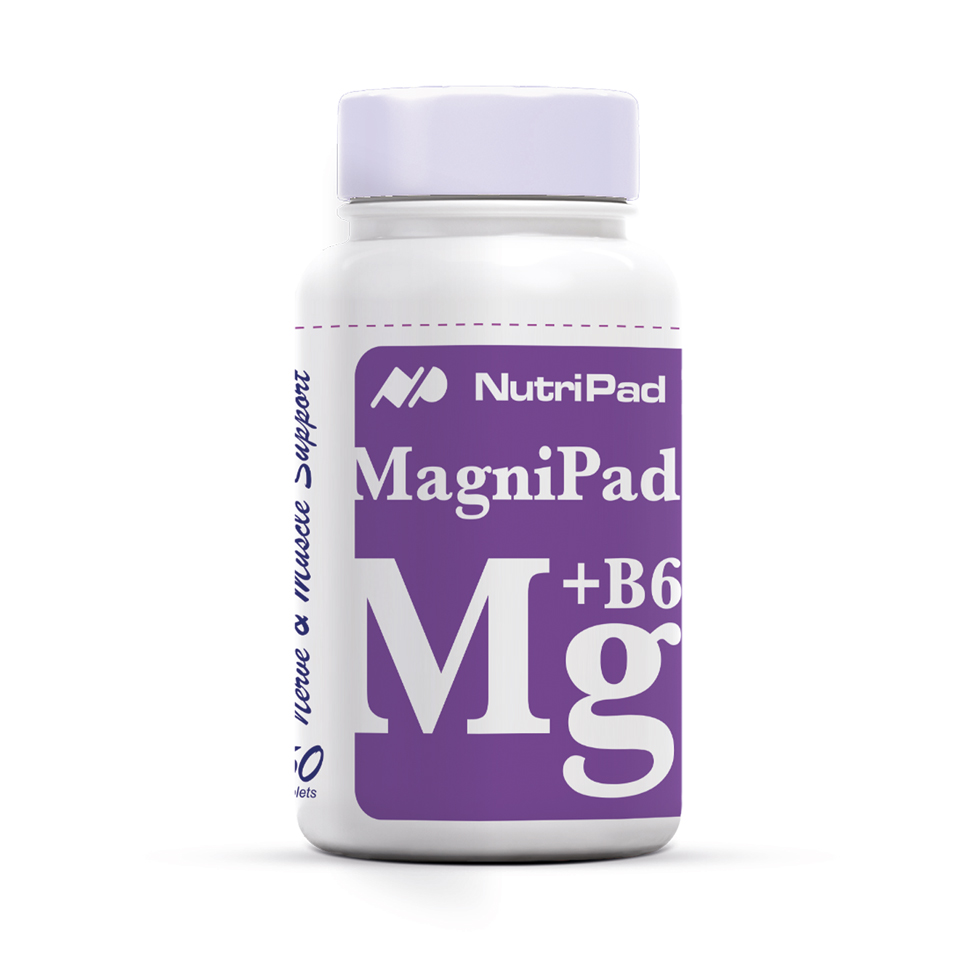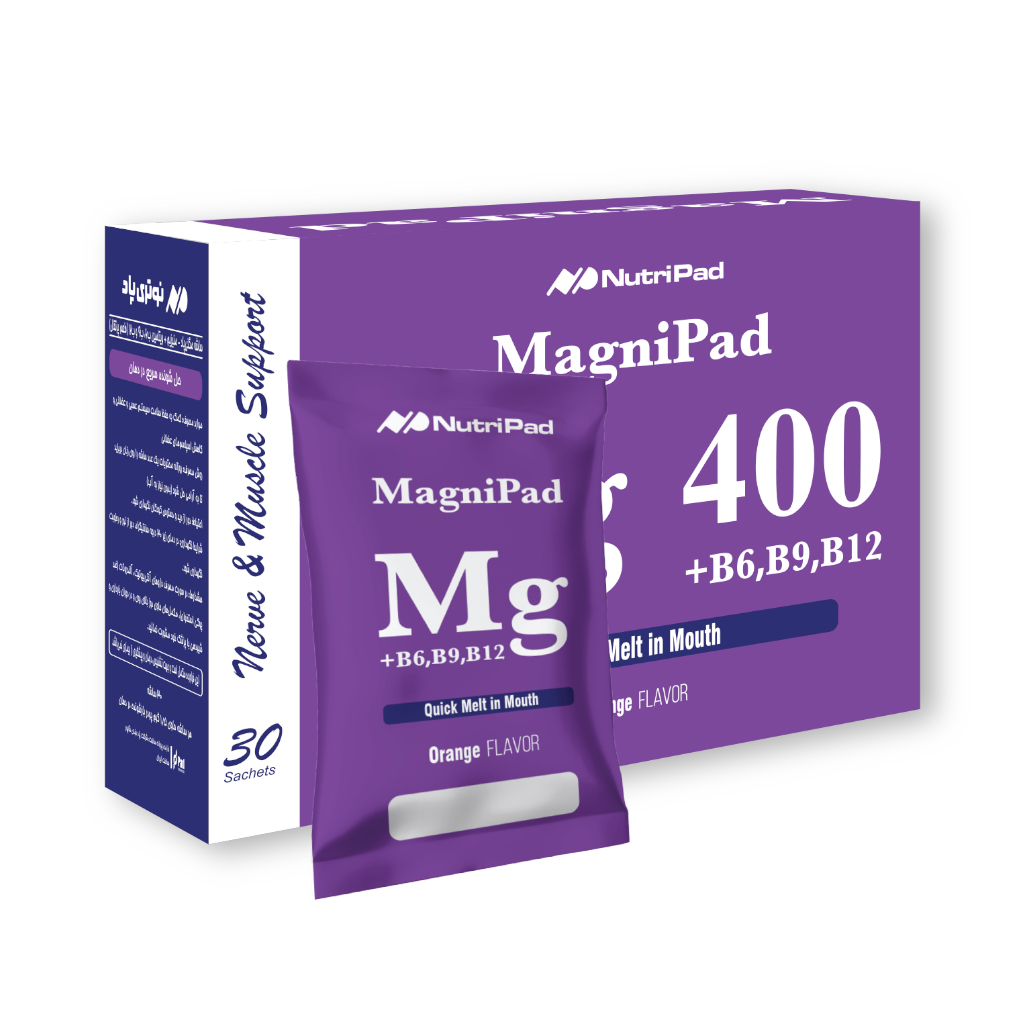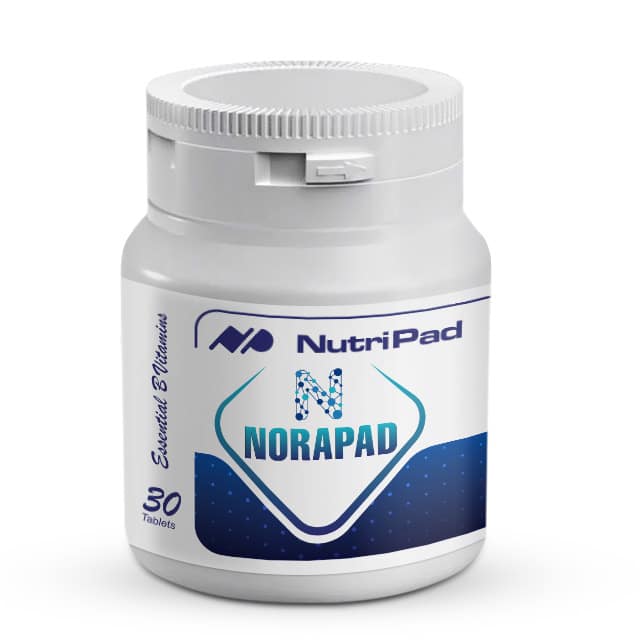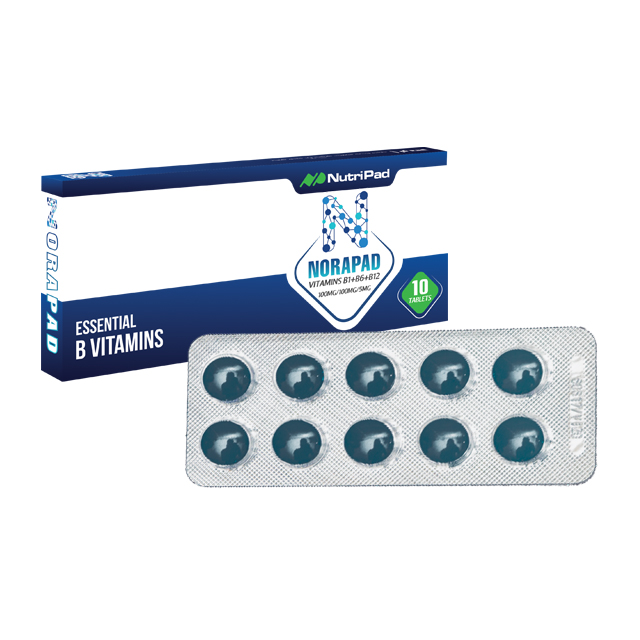Supplements for the nervous system and muscles
Nerve and muscle cells in our body are cells with a very specialized function and have a normal level of minerals (such as calcium, magnesium, sodium and potassium) as well as various vitamins, especially group B vitamins and vitamin D are necessary for their function.
What are the most important B vitamins in the functioning of the nervous system? What are their roles?
- Group B vitamins are a set of water-soluble vitamins that play many roles in the body. There are various products in which there is more than one type of this group of vitamins. There are also products that have been specifically introduced for use in the field of brain and nerve function. These products may be available in injectable or oral form.
- Among group B vitamins, three vitamins B1, B6 and B12 are more important in connection with nerve function. Available studies indicate that each of these three vitamins has beneficial effects on the nervous system. Vitamin B1 is important in the production of energy and its consumption in nerve cells. Vitamin B6 plays a role in making neurotransmitters and transmitting messages between nerve cells. Vitamin B12 is important in the function of the cells around nerve cells and the formation of myelin, which plays a role in the transmission of messages in the axons of nerve cells. Deficiency in any of these three vitamins is associated with the occurrence of serious symptoms in the nervous system.
Why group B vitamins are in people with diabetes?
- Among the other properties of these vitamins are their neurotrophic effects (helping to reproduce and repair nerve cells). This effect is especially important in patients with diabetes. About 450 million people in the world have diabetes. After several years of diabetes, patients with diabetes develop a complication called “diabetic neuropathy”. In this condition, due to damage to the nerves, patients experience pains in the form of burning and tingling. The pains are mostly felt in the extremities, i.e. in the hands and feet and in the parts that are normally covered by gloves and socks. There is evidence that taking these three vitamins (B1, B6 and B12) at the same time may have a synergistic effect in improving the symptoms of diabetic neuropathy. In addition, these vitamins may improve the symptoms of other forms of neuropathy and other neurological problems in general.
- NoraPad oral tablets contain a high dose of vitamins B1, B6 and B12 in amounts equivalent to Neurobion ampoules. Patients with diabetic neuropathy can benefit from the beneficial effects of these three important vitamins in reducing their symptoms by using Norapad oral tablets.
Is there a need to take vitamin B supplements? which people benefit from vitamin B supplements?
– The general recommendation is to try getting the vitamins the body needs through the diet. However, harmful eating habits and some underlying conditions may make us prone to deficiency in group B vitamins. For example, a main source of group B vitamins is grains with bran, while nowadays most of us use bread made from bran-free grains and refined flour.
Among B vitamins, some such as vitamin B12 are mainly found in animal sources such as meat, and vegans may be exposed to vitamin B12 deficiency. Also, the use of metformin (one of the useful oral blood sugar-lowering agents used in diabetes) makes us susceptible to the deficiency of group B vitamins. Stomach acid suppressant drugs (such as omeprazole) make it difficult to absorb some B vitamins, including vitamin B12. People over 50 years old are more prone to deficiency of group B vitamins. Therefore, taking vitamin B supplements may be beneficial for many people.
– On the other hand, group B vitamins are water-soluble vitamins, which means that their excess amount is excreted from the body, and the body does not store a significant amount of them. Vitamin B12 is the only exception, and the body stores the required amount for 2-3 years, for this reason, vegans, if they do not take supplements containing vitamin B12, usually will experience symptoms of vitamin B12 deficiency after 2 to 3 years.
– As a conclusion and as a general rule, always try to get a sufficient amount of group B vitamins through proper nutrition, and if for any reason you fail to do so or you are one of those people who are prone to deficiency of group B vitamins, don’t forget to take vitamin B supplements.
– NoraPad oral tablets contain a high dose of vitamins B1, B6 and B12 in amounts equivalent to Neurobion ampoules. By using Norapad oral tablets, you can benefit from the above benefits on the nervous system without having to endure the pain caused by an injection.
Could supplements be useful in reducing psychiatric problems such as “anxiety” and “depression”?
– Anxiety is the most common psychiatric disorder. About 30% of the population experiences anxiety disorders during their lifetime. At the same time, a moderate level of anxiety is considered a physiological mechanism that plays a role in protecting us from dangers and escaping from difficult situations. However, long-term anxiety and stress leave many destructive physical and mental effects and require attention and treatment. Anxiety may overlap or exacerbate other psychiatric disorders such as depression. Accurate assessment of anxiety requires a clinical psychiatric interview, but many people, despite experiencing anxiety and excessive stress, do not pay enough attention to treat or reduce anxiety. Non-pharmacological treatments such as “cognitive therapy” also have a place in the treatment of anxiety. However, the anxiety may become so intense that makes the thinking process difficult.
– Loss of concentration, the influx of multiple thoughts while sleeping, early morning or midnight waking up with the slightest stimulus and then being unable to fall asleep again, are all signs of anxiety. In such a situation, it may be necessary to take the help of anti-anxiety drugs to improve the situation.
– At the same time, the lack of some vitamins and minerals may play a role in the aggravation and emergence of anxiety symptoms, and compensating for the lack of these minerals and vitamins can have positive effects in improving anxiety.
Deficiency in which vitamins and minerals may contribute to the aggravation and emergence of anxiety or depression?
1- Magnesium: Perhaps the most important mineral that can be mentioned in this regard is magnesium. Magnesium deficiency is very common. About one-third to one-half of the population has some degree of magnesium deficiency. It is noteworthy that the normal level of magnesium in the blood does not indicate the sufficient amount of magnesium in the whole body, because the magnesium ion is an intracellular ion, and the evaluation of the total amount of magnesium in the body requires more complex tests. The daily need for magnesium is between 300 and 400 mg depending on age and sex. But many people get less than this amount through their diet.
- Using magnesium supplements for periods of 6 to 8 weeks has been able to significantly reduce anxiety symptoms. Also, taking magnesium supplements has an effect on depression. In addition, magnesium is necessary for hundreds of metabolic and enzymatic reactions in the body. Magnesium is necessary for the production of neurotransmitters in the nervous system (chemicals like serotonin and GABA), and disturbances in these neurotransmitters are related to anxiety disorders and depression.
- Anxiety may also affect the quality of sleep, and taking magnesium supplements may improve sleep quality by reducing the excitability of the nervous system.
2- Potassium: Potassium deficiency may also aggravate anxiety symptoms and cause irritability. However, potassium deficiency is not very common in people without underlying diseases. On the other hand, patients hospitalized in critical care units and patients who are fed intravenously, diabetic patients with poorly controlled blood sugar levels, are quite susceptible to potassium deficiency.
- Note that the use of some medicines may also make a person susceptible to magnesium or potassium deficiency. For example, taking some diuretic drugs that have many cardiovascular uses (like hydrochlorothiazide and furosemide) may make a person prone to magnesium deficiency or potassium deficiency as a side effect. Also, the use of stomach acid suppressants (like omeprazole) could cause impaired absorption of minerals, especially magnesium.
3- Vitamin D: Vitamin D3 may also be effective in reducing anxiety symptoms by counteracting the effect of cortisol (a hormone whose secretion increases during stress and anxiety). Vitamin D deficiency is also very common. In the US, about 40-50% of the population has faced some degree of vitamin D deficiency.
- Apart from psychological effects, stress and anxiety, , may facilitate the occurrence of diabetes, high blood pressure and other cardiovascular diseases as well as heart attack in the long term. Therefore, always pay attention to eliminating the causes of anxiety and stress from your life. Note that the prolongation of anxiety disorders may make their treatment difficult.
The use of supplements in neurological complications caused by diabetes
- Can diabetes cause nerve damage?
- If your blood sugar is high for a long time, diabetes can cause nerve damage. The medical term for this problem is “diabetic neuropathy”. The more the blood sugar is not well controlled and the more years have passed since the onset of diabetes, the more likely diabetic neuropathy will occur.
- What are the symptoms of nerve damage caused by diabetes?
- Nerve damage usually first affects the distal areas of the feet (the part of the feet covered by the sock). Common symptoms include:
- Numbness
- Burning or pain that is often worse at rest or at night
- Tingling
- Annoying or relatively severe pains with a light touch of the affected area
- In the long term, loss of pain sensation and preparation for diabetic ulcers
- As nerve damage worsens, symptoms may reach higher areas. Some people may feel symptoms on their hands (areas normally covered by gloves).
- Is there a test to check for nerve damage caused by diabetes?
- Yes, your doctor can usually determine if you have nerve damage (neuropathy) by taking a history and performing an examination. Also, tests such as “nerve conduction study” or “electromyography” (EMG) are used to diagnose diabetic neuropathy.
- Can nerve damage be prevented in people with diabetes?
- Studies show that you can reduce your risk of nerve damage by:
- Keep your blood sugar as close to normal as possible
- Do not smoke
- Have a healthy diet and lots of physical activity
- Reduce your weight
- Make sure to treat high blood pressure and heart disease (if you have it).
- Take a sufficient amount of B group vitamins, especially vitamins B1, B12 and B6
- Use enough magnesium
- Studies show that you can reduce your risk of nerve damage by:
What supplements and medications have a beneficial effect on diabetic neuropathy?
- Group B Vitamins, especially vitamins B1, B6 and B12, have been effective both in preventing progression and improving pain caused by neuropathy. In some products, such as Neurobion ampoules, these three important vitamins are included together in one product. Oral forms of Neurobion have also have introduced to the market.
- “NoraPad” oral tablets contain a combination of these three vitamins to the same extent as the famous brand of “Neurobion Forte” tablets. Oral forms in most patients can produce beneficial effects without suffering the pain caused by injection and possible side effects.
- Magnesium, especially in combination with vitamin B6, has positive effects in improving diabetic neuropathy. Combined products of magnesium + vitamin B6 are also available in the market. (For example, NutriPad magnesium-B6 tablets)
- If the above supplements are not effective, medications such as pregabalin, gabapentin, carbamazepine, duloxetine and amitriptyline can be used. Compared to the above-mentioned supplements, these drugs have potentially more side effects and drug interactions, and their use must be under the supervision of a doctor.





